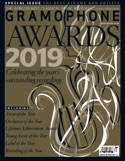Texte paru dans: / Appeared in: |
|
|
Outil de traduction (Très approximatif) |
|
|
Reviewer: Lindsay Kemp It takes a special kind of pedantry to put square brackets round a single-word title on the cover artwork of a CD. True, the manuscript source for Louis Couperin’s 130 or so harpsichord pièces does not feature the word ‘suite’ anywhere, leaving the gathering of them into serviceable single-key groupings to the performer; but suites are what they are, and the ordering of them suggests that Couperin regarded the prelude-allemande-courante-courante-sarabande-gigue sequence as the core around which to build. Rinaldo Alessandrini does exactly that here, constructing three long suites of 10-13 movements each. So why not just simply call them suites and be done with it? No doubt I am missing wood for trees here, but actually I think it contributes to a carelessly insular feel to this release. Alessandrini’s booklet notes read more like a paper for a harpsichordists’ convention than a useful introduction to the composer, the English translation accidentally includes a chunk of a note from somewhere else, and the unidentified harpsichord has a fiercely metallic sound made into truly uncomfortable listening by an unnecessarily close recording. The resulting impression is less of a considered offering to the listener than a run-out for Alessandrini’s performance-practice theories, which are mainly that Couperin’s semi-notated, bar line-free préludes should not be seen as improvisatory, and therefore open to ‘rhythmic anarchy’, but rather as sturdy harmonic structures loosened from the tyranny of a regular beat, like an expressive madrigal. Madrigals are very much Alessandrini’s thing as director of Concerto Italiano, of course, and he does invest the unmeasured sections of these préludes with considerable rhetorical weight. So too the marvellous Tombeau de Mr de Blancrocher. Yet the stricter sections of the préludes sometimes plod, and a number of dances lack simple momentum. There is good playing here, but in the end it is just not all that beguiling. A friendlier welcome comes from the classy sound and touch of Christophe Rousset’s two recordings (Aparté; Harmonia Mundi, A/18) and the equally assured but more rhythmically playful Skip Sempé (Alpha, 4/05). |
|




